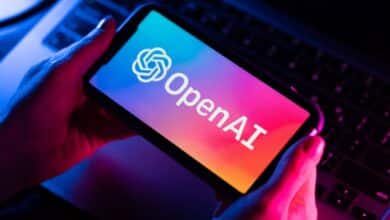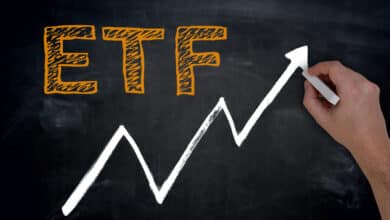NYT Sues OpenAI And Microsoft Over AI Training: What To Know

NYT Sues Tech Titans Over Copyright Infringement
The New York Times (NYT) has taken tech giants OpenAI and Microsoft to court, asserting that their utilization of NYT content to train AI models violates copyright laws and affects the integrity of journalistic efforts. The lawsuit, filed on December 27, claims that OpenAI has systematically employed NYT content to train its AI chatbots, impeding the newspaper’s ability to carry out its journalistic endeavors.
Citing constitutional and Copyright Act violations, the NYT claims that it aims to safeguard actual journalism against unauthorized exploitation. The lawsuit alleged that Microsoft’s Bing AI generated verbatim excerpts from NYT articles without proper authorization.
According to the court filing, this has undermined the newspaper’s relationships with its readers and diminished potential revenue streams from subscriptions, advertising, and affiliate arrangements.
Expert’s Opinions
Cecilia Ziniti, intellectual property, and AI law expert, hailed the lawsuit as a pivotal instance exposing AI’s copyright infringement. Ziniti also highlighted that the “www.nytimes.com” domain ranks high among proprietary sources, rivaled only by Wikipedia and the database of US patent documents.
Furthermore, the lawsuit highlighted mere word variances between authentic NYT content and outputs generated by OpenAI’s GPT-4. According to the lawsuit, efforts for an amicable resolution initiated by the NYT with Microsoft and OpenAI in April 2023 yielded no fruit.
Ziniti emphasized that her decade-long subscription to NYT and its archives might have been redundant if ChatGPT provided such articles at no cost. Observers anticipate this legal battle will mark a defining juncture for AI and copyright law.
Reactions across forums vary, with some hoping the NYT’s claims are untrue while others believe the case is an intriguing scenario worth monitoring closely. Recall that the Author’s Guild commenced a class-action lawsuit against OpenAI for alleged misuse of copyrighted material in training AI models.
Similarly, Universal Music Group sued Anthropic AI over copyright infringement. At the same time, a separate lawsuit by artists targets Midjourney, DeviantArt, and Stability AI for utilizing art to train image-generating AI tools.
In response, OpenAI has pledged to cover legal expenses for business-tier ChatGPT users embroiled in copyright infringement disputes, showcasing its commitment to mitigating legal problems for its user base.
New Evidence Amplifies Artists’ Copyright Lawsuit Against AI Developers
Meanwhile, artists led by a group that includes Grzegorz Rutkowski, H. Southworth, and Gregory Manchess have fortified their claims against Midjourney, Stability AI, DeviantArt, and newcomer Runway AI. The amended lawsuit alleges these companies utilize AI systems that replicate artists’ styles when using the prompt with their names without crediting the creators’ work.
Furthermore, it contends that Midjourney’s use of artists’ names as generative prompts violates federal trademark laws. While sections of the initial case were dismissed due to insufficient evidence, the recent developments reflect a strategic push to reinforce the claims.
This lawsuit echoes a broader trend, as similar copyright infringement cases target leading tech entities like Google, Microsoft, and Meta, signaling a pivotal moment in defining AI’s boundaries relative to artists’ work.
2023 Crypto Trends: AI Tokens Ranks Highest Amidst Lawsuit Concerns
A new Coingecko data shows that the crypto spotlight of 2023 shone brightly on artificial intelligence (AI), capturing 11.3% of total interest, with Web3 gaming closely trailing behind. This surge in AI interest can be traced back to the emergence of AI-driven chatbots like ChatGPT in November 2022.
Akash Network (AKT) and Render (RNDR) emerged as frontrunners among AI tokens, with strong yearly performances. AKT gained 1,247%, reaching $2.56 by December 22. RNDR, the top AI token by market cap, also recorded a 12-fold increase in value in the last 12 months.
Growth Of AI-Focused Tokens
Other AI tokens like Bittensor (TAO) surged by 276%, Fetch.ai (FET) gained 660%, and SingularityNET (AGIX) surged by 625%. This exponential growth mirrors AI technologies’ escalating momentum in 2023, having applicability in various industries, including the crypto industry.
As AI advancements persist, CoinGecko predicts that this narrative will continue dominating the crypto realm in 2024, further propelling interest in AI-focused cryptocurrencies and applications. Meanwhile, GameFi and ImmutableX (IMX) ranked second and third in 2023 crypto search trends.
Tokenhell produces content exposure for over 5,000 crypto companies and you can be one of them too! Contact at info@tokenhell.com if you have any questions. Cryptocurrencies are highly volatile, conduct your own research before making any investment decisions. Some of the posts on this website are guest posts or paid posts that are not written by Tokenhell authors (namely Crypto Cable , Sponsored Articles and Press Release content) and the views expressed in these types of posts do not reflect the views of this website. Tokenhell is not responsible for the content, accuracy, quality, advertising, products or any other content or banners (ad space) posted on the site. Read full terms and conditions / disclaimer.






